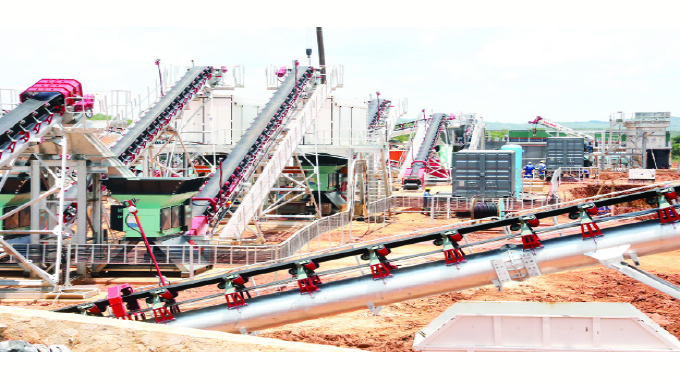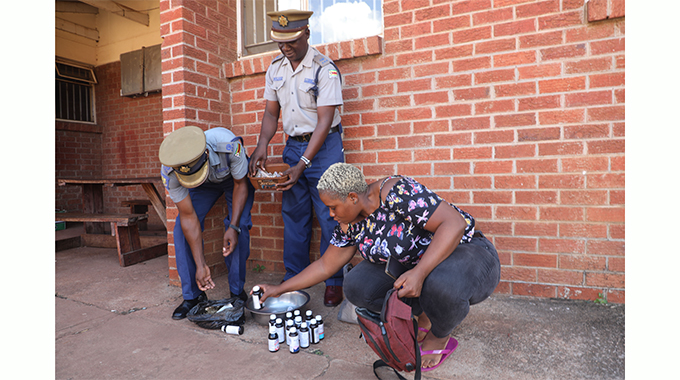Insiza lithium mine readies, families relocation starts

Nqobile Bhebhe in Fort Rixon-Bulawayo Bureau
THE process of relocating families situated within the Premier African Minerals multi-million-dollar lithium project zone in Fort Rixon, Insiza District, has started with Government officials already on site surveying the area.
A total of 17 officials from the Ministry of Lands, Agriculture, Fisheries, Water, and Rural Development have been deployed on site for 10 days to ensure smooth implementation of the process, paving the way for the commencement of production.
The initial phase will see the relocation of 26 families, starting with five priority homesteads, which are situated close to the blast pits.
As the project readies for take-off, Premier African Minerals officials yesterday expressed commitment to ensure improved livelihoods of villages by constructing key infrastructure such as schools, drilling boreholes, paving access roads, constructing dip tanks and paying school fees for vulnerable children.
Chronicle Business understands that three-roomed houses will be constructed for relocated families.
In an interview, site manager, Mr Jabulani Chirasha, said working with the local leadership, families to be relocated would be resettled in descent areas.
Satisfied with progress in the plant assembling process, he said several meetings with affected families and Government departments have been held and there is mutual cooperation from all parties.
“We are doing relocation in priorities in terms of who is nearer to the mining area. At the moment there are five critical villagers whom we need to move. We are moving 26 households in priorities,” said Mr Chirasha.
“We have households that are critical and need to be relocated urgently because they are nearer the mining area so that we can start blasting.
“The Ministry of Lands people are here and there are 17 of them. They will do the pegging where the villagers will be relocated to.
“Once they finish, relocations will start. We are going to drill boreholes, access roads, and everything, which the villagers will need to live in a dignified manner.”
In line with Government expectations and the need to ensure locals benefit more from natural resources within their community, Mr Chirasha said the mining firm is committed to improving the lives of ordinary people.
“We have told ourselves that their lives must improve from where they were. Of the five families to be relocated, three of them are already working here. They are happy to move,” he said.
“We are totally committed to ensure that the living standards of everyone around us is going to be far much better than what they were. (Mr) George Roach, our chief executive officer, is very committed to make sure their lives is much better.”
A massive dam is under construction and its surplus water is earmarked for an irrigation scheme, which will contribute to food security in the area.
“We’ve done a lot of research as we want to set up an irrigation scheme for them and we will hire an Agritex officer to make sure higher production is achieved than what they were producing.”
One of the affected villagers, Mr Thabani Nyathi of Pioneer Village 2, said he was happy with relocation arrangements.
“We’ve held meetings with the Ministry of Lands officials, Environment Management Agency (EMA), councillors and the district administrator explaining the situation.
“A new place has been identified for us. Premier African Minerals people have promised to build houses for us comprising a kitchen, toilets and a three-roomed house,” he said.
“They pledged to assist us with farming, supply us with one tonne of maize monthly allowances till the end of the year.
“Children of school-going age would also be assisted until they reach 21 years.
“Personally, I’m happy with the pledges made, we cannot block development in our area. Most of us are struggling to pay schools fees for our children and this is a huge relief for us.”
The multi-commodity firm is developing a high-impact Zulu Lithium Project in Fort Rixon where it is targeting production within this quarter.
The lithium project is generally regarded as potentially the largest undeveloped lithium-bearing pegmatite in Zimbabwe, covering a surface of about 3,5 square kilometres, which are prospectively for lithium and tantalum mineralisation.
Multiple civil support construction both at the plant site and the main masonry arch dam is progressing well and remains on target to produce spodumene in the first quarter of this year.
Lithium is a mineral used in the manufacture of batteries and its demand has risen sharply because of the demand for electric cars, especially in developed countries that are forging ahead with plans to phase out fossil fuels such as petrol and diesel in the next coming years.
Early this year, the chairman of Suzhou TA&A, Mr Pei Zenzhue, who injected US$35 million in pre-funding to enable the construction and commissioning of a large-scale pilot plant at the project, had his first visit to the site and expressed satisfaction with the progress made so far.
Suzhou TA&A Ultra Clean Technology company, a China-based company principally engaged in the research, development, production, and sale of anti-static ultra-clean products is provided the funding.
Zimbabwe is envisioning a US$12 billion mining industry by 2023, which is a key enabler of Vision 2030 of achieving an upper-middle-in-come economy by 2030.
Of the US$12 billion, gold, platinum and diamonds will contribute US$4 billion, US$3 billion, and US$1 billion respectively.
Other minerals such as chrome, iron ore and carbon steel will contribute US$1 billion while coal and hydrocarbons will do the same.
Given its strategic role within the global economy, lithium is expected to contribute US$500 000 while other minerals will add US$1,5 billion.
Lithium has already proved its position as a strategic mineral given its role in the storage, use and transfer of energy, which has touched the globe through the use of smartphones for global communication, laptops, electric grid stability and storage to power homes, and electric vehicles.
President Mnangagwa has said it is imperative for the country to move beyond banning export of lithium and other ores and focus on research and development towards transforming ores into domestic semi and finished products.
The country holds some of the world’s largest reserves of hard rock lithium, a vital mineral in the production of clean energy technologies.
Lithium deposits have been identified in Mashonaland East, Masvingo, Manicaland, Mashonaland Central, Matabeleland North, and Matabeleland South provinces with more deposits likely to be discovered.
Lithium is a strategic mineral that holds the key to the global transition to clean energy with many countries already moving towards its use in anticipation of the move to electric vehicles.










Comments